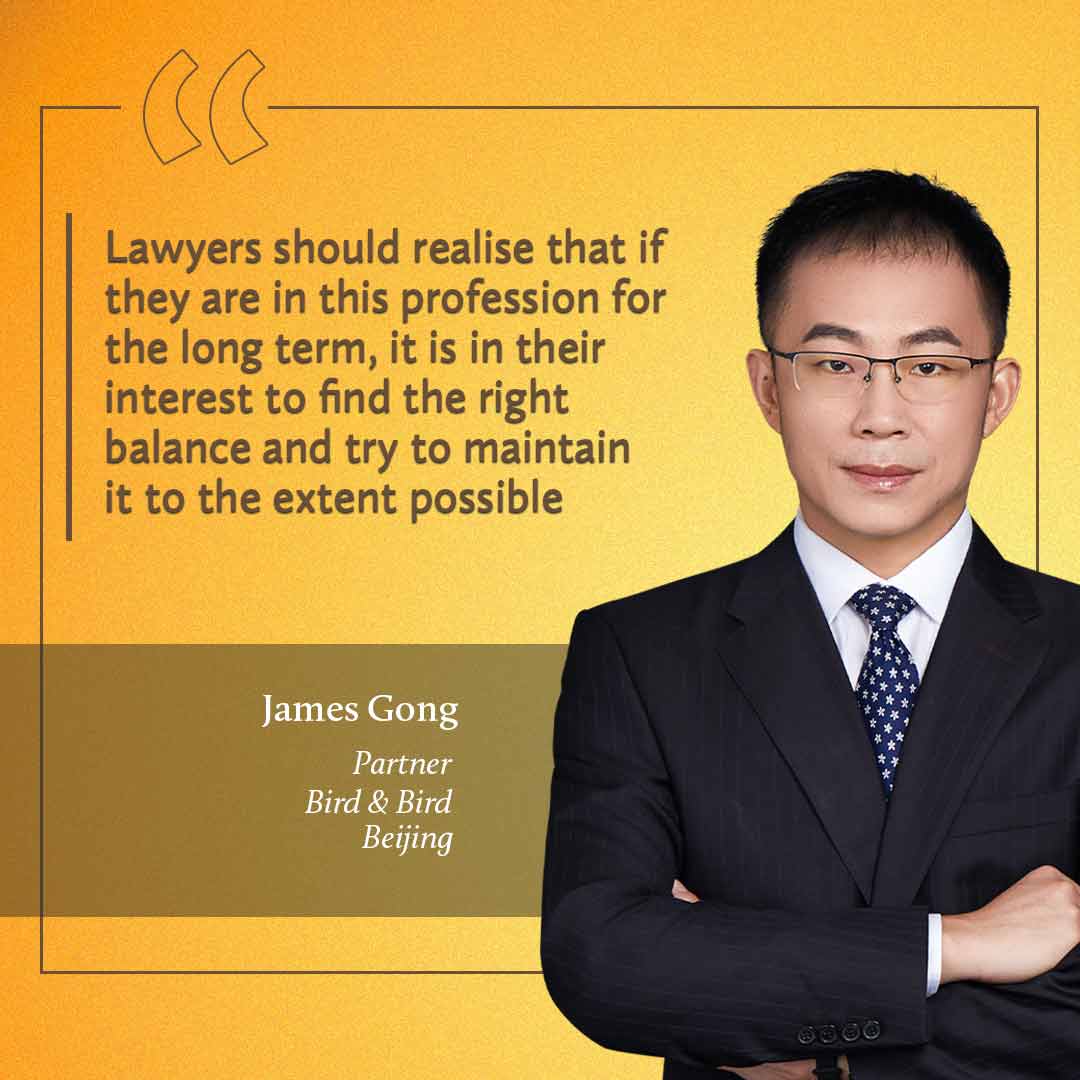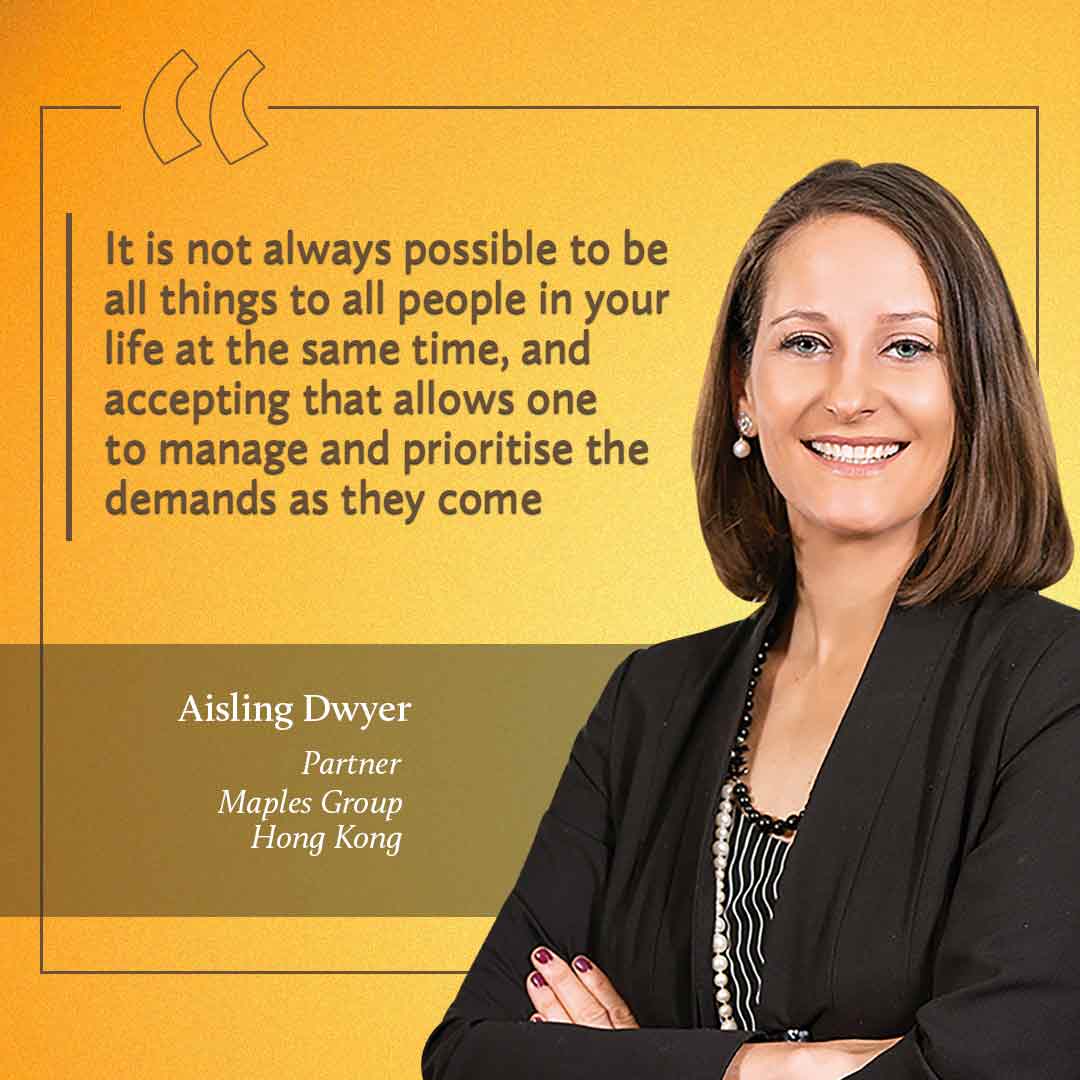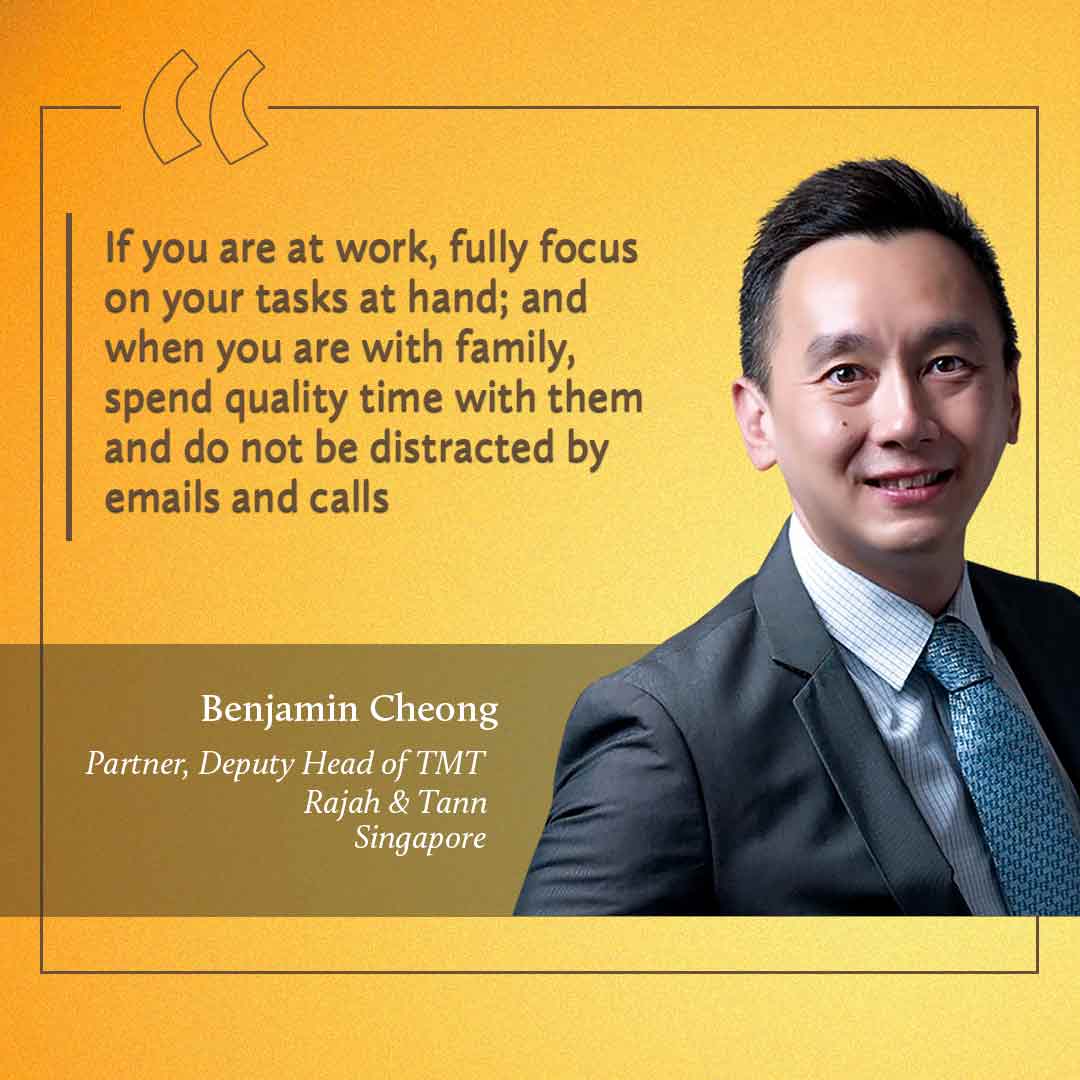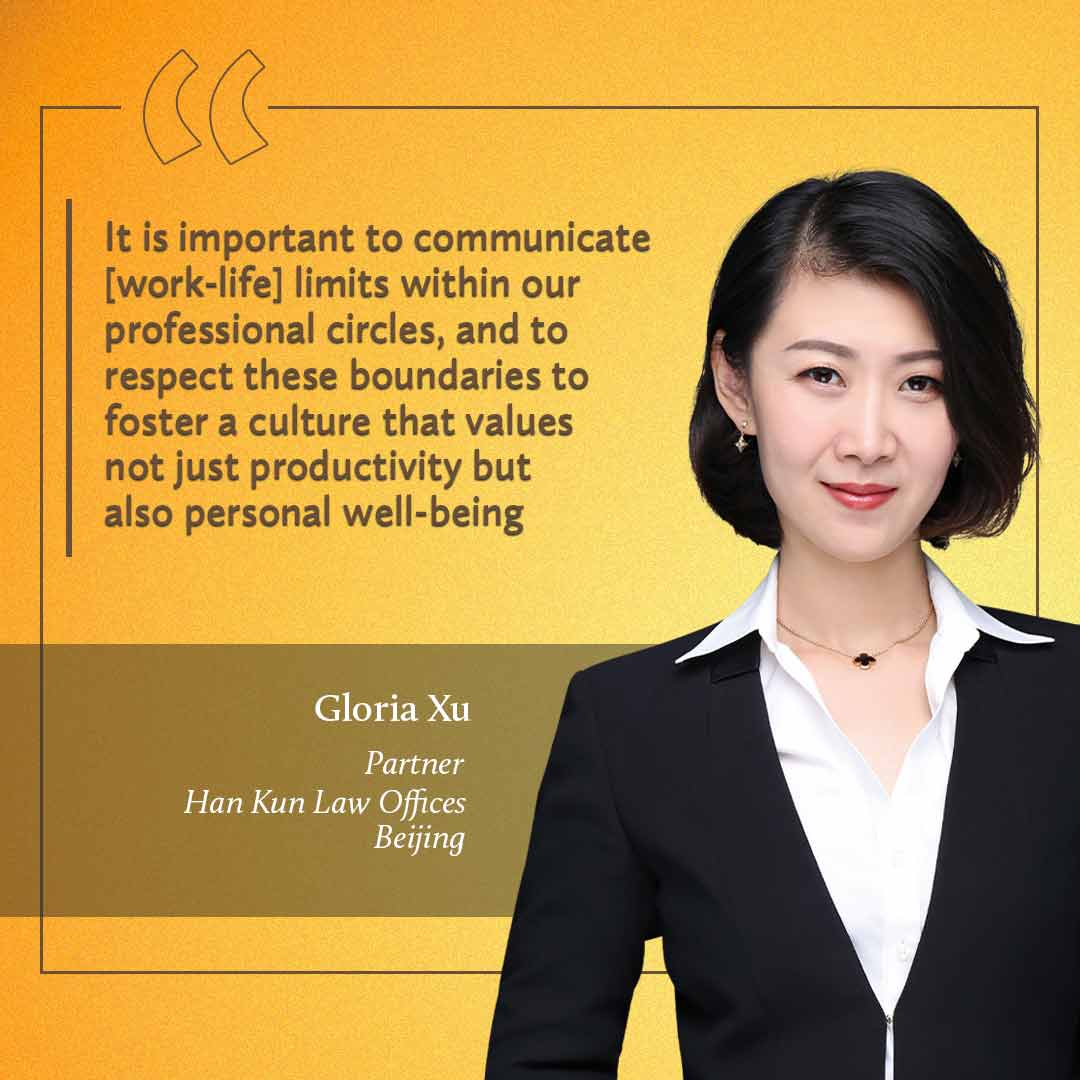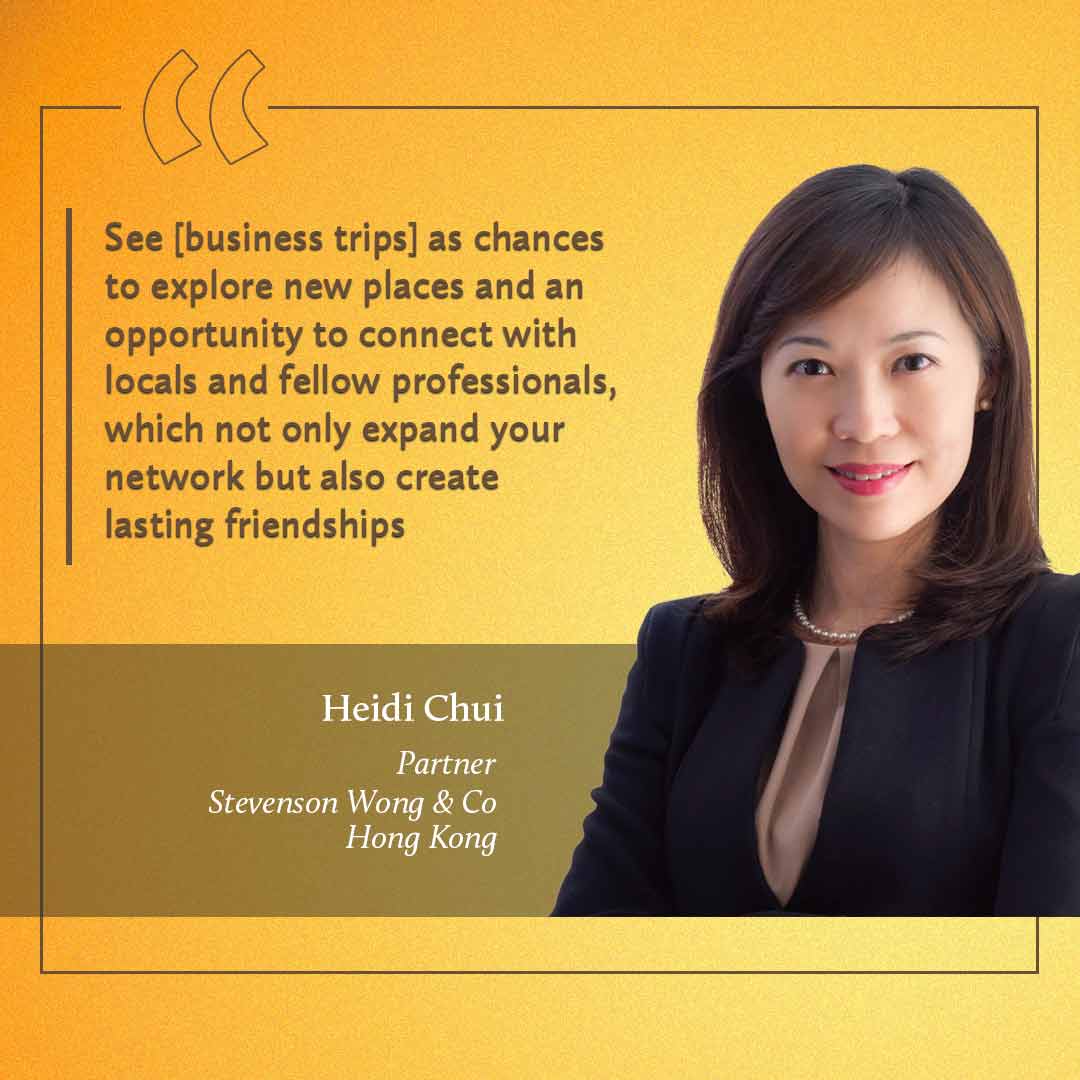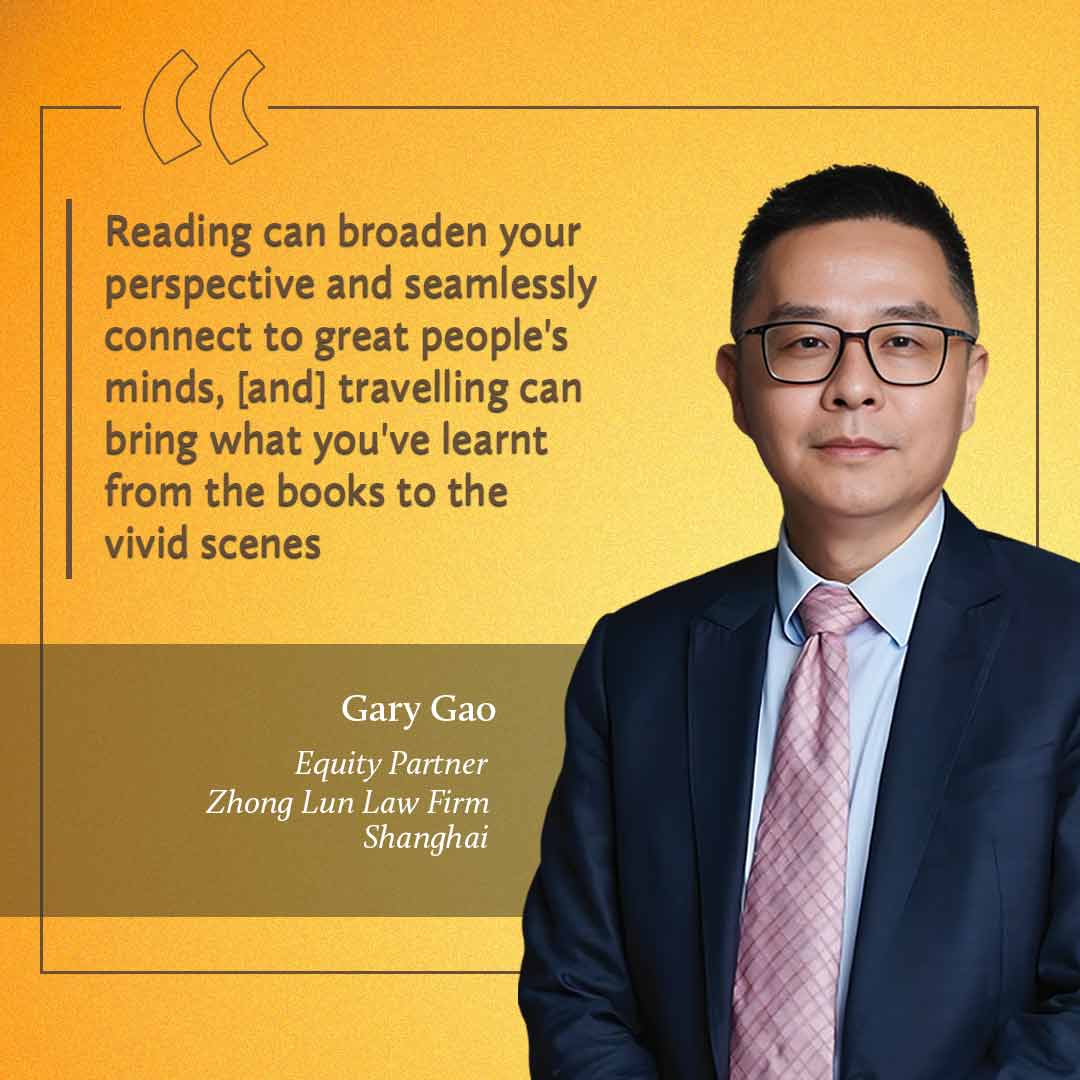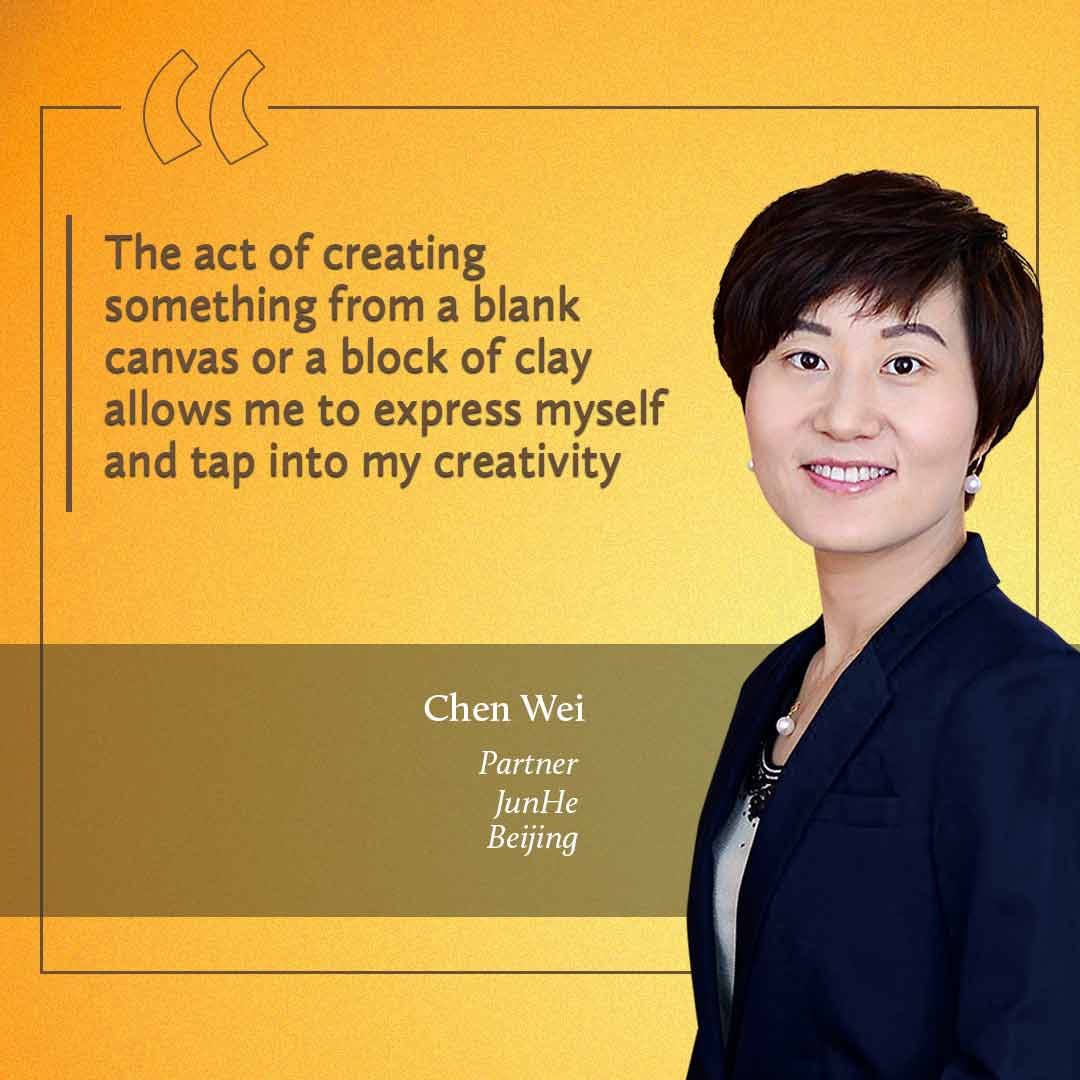Long working hours may be part and parcel of the lawyer experience, but it does not have to compromise other pursuits in life. Kevin Cheng reports
Let us forgo, just for a moment, all the jokes about lawyers and their hourly billings, and embrace one constant truth across all time and space: lawyering takes a lot of time. Between managing clients, offering consultancy services, preparing cases – poring over countless pages to write extensive reports – and finally appearing in court! It seems almost unfathomable that lawyers can commit to many interests, hobbies or personal projects.
But somehow, they make it work, according to the winners of China Business Law Journal’s A-List 2023-24, who have shared with us their thoughts on the work-life balance – and a dazzling variety of their own pursuits beyond the legal realm – demonstrating that professional success does not necessarily, and indeed should not, come at the expense of quality of life.
The A-List 2023-24: Visionaries
After collecting a wide range of market feedback, the editorial team of China Business Law Journal announces The Visionaries in China’s legal market
The A-List 2023-24: Growth Drivers
Following an extensive survey of market opinion and independent editorial research, China Business Law Journal announces the Growth Drivers in China’s legal market
The A-List 2023-24: Rising Stars
Following an extensive survey of market opinion and independent editorial research, China Business Law Journal announces China’s future legal leaders
A reconciliation
Work-life balance is a frequently discussed topic across all professions, and lawyers are no exception. The legal field is notorious for its demanding nature, with endless tasks and pressures that can mount without notice.
James Gong, a partner at the Beijing office of Bird & Bird, acknowledges that such a balance can be difficult to maintain in this field of work. “Lawyers should realise that if they are in this profession for the long term, it is in their interest to find the right balance and try to maintain it to the extent possible,” he says.
He achieves this by striving to finish most work in the office, leaving weekends undisturbed, and engaging in outdoor activities. “Regular exercise, even if it is cycling to work, is good to maintain good health and spirit,” he says.
Zhang Yaxing, a Beijing-based partner at Han Kun Law Offices, also finds the balancing act difficult, especially for litigation lawyers, as cases require sifting through many details, which naturally demands a lot of time. For this, he believes, improvement of efficiency and management of workload is key to fulfilling the “life” side of the equation.
However this should not be pursued wantonly. “Under no circumstances can life be prioritised at the expense of the client’s interests or the quality of the case,” he stresses.
Zhao Xiao, a Beijing-based partner at Jingtian & Gongcheng, does not believe in looking at work and life from a dichotomous perspective. “When I am immersed in work, life becomes fulfilled; when I am immersed in life, work is also empowered,” he says. “The two are mutually beneficial, rather than exclusive or opposite of each other.”
While lawyers generally agree that professional ambitions should not be achieved solely by relentless grinding, there are questions as to the appropriateness of the concept of “work-life balance”, trendy as it may have become.
Aisling Dwyer, Hong Kong-based partner at Maples Group, finds it a “potentially misleading term”, as it suggests an equal division of time between home life and work life, but disregards that one element naturally takes more time and energy at a given stage.
“It is not always possible to be all things to all people in your life at the same time, and accepting that allows one to manage and prioritise the demands as they come,” she says.
Instead of a perfect balance, the term “work-life harmony” has been suggested and is gaining traction. Still, others take a more direct stance on the matter.
“Work-life balance is a myth,” says Liu Zhen, partner and head of China practice at Gunderson Dettmer, suggesting that overthinking about the mythical balance and why it has not been achieved can be unhealthy.
“However, mental stability and happiness are achievable, and absolutely crucial,” she says. “If you are thinking too much about this work-life balance thing, pause and ask yourself if lawyering is truly something you like to do.”
A state of mind
Despite, or perhaps because of, the time-consuming nature of their profession, leading lawyers have transformed the usually mundane or subconscious routine of time and energy management into explicit experiences, methodologies, and even philosophies.
Benjamin Cheong, a Singapore-based partner and deputy head of TMT at Rajah & Tann, offers the following advice: always be fully present where you are, which means to be physically, mentally and emotionally present at the here and now.
“If you are at work, fully focus on your tasks at hand; and when you are with family, spend quality time with them and do not be distracted by emails and calls,” he says.
In the hectic world of law, time is perhaps the scarcest resource, says Hilda Chan, partner at the Hong Kong office of Dorsey. “Knowing when to ask for help and having an effective support network has been important to my professional practice and also my personal life,” she advises.
A support network of lawyers often includes family, friends and trusted colleagues. Therefore, team building and delegation, although a part of work, are crucial.
“Delegate effectively” is one of the secret tricks of Wang Dong, a partner at the Beijing office of Globe-Law Law Firm. “Understand that you don’t have to do everything yourself,” he says, while also stressing the importance of identifying core priorities and setting clear boundaries.
Establishment of clear boundaries between work and life is a critical but challenging step. “Lawyering, by its nature, can be all-encompassing, with the lines between professional and personal life often blurring,” says Gloria Xu, a Beijing-based partner at Han Kun Law Offices.
“It is important to communicate these limits within our professional circles, and to respect these boundaries to foster a culture that values not just productivity but also personal well-being.”
To address the exclusiveness of disposable time, Lindsay Gao, head of the Hong Kong office of Merits & Trees Law Offices, came up with a radius theory. “Let us assume that a person’s life is a circle filled with both life and work. Then when the radius of the circle is fixed, drawing the dividing line anywhere will result in a trade-off,” she explains. “However, when you strive to extend the radius of your life’s trajectory, the dilemma of choosing between family and career may no longer be an issue.”
Wang Weibin, the Shanghai-based managing partner at Beshining Law Office, adopts the pomodoro technique in addition to ensuring regular working habits. “After working for two consecutive hours, I would give myself a 10-minute break,” he says.
True, none of these methods can make evidence collect itself or magically highlight risk points in a contract, but a proactive and optimistic mindset is known to work wonders.
Tang Huaying, a Shenzhen-based senior partner at China Commercial Law Firm, maintains a balanced mind by way of a “principle of deduction” to resist the temptations of fortune and fame. “There is no end to pursuits in a career. If one relentlessly chases after so-called ‘success’, there will inevitably be less room for life, which ultimately leads to confusion and pain,” she says.
More than a pastime
Now that we have established that lawyers can achieve a sense of harmony between work and personal life, allowing them ample opportunities to pursue other interests, the question remains: what do they actually do with their time off?
The answer is, well, a bit of everything. They jog past you on the track fields, politely ask you to help take their pictures at tourist attractions, or join you in avatar form in an online multiplayer game.
Travelling is a go-to option for many lawyers, especially when they already need to go on business trips, as is the case for Heidi Chui, Hong Kong-based partner at Stevenson Wong & Co.
“Instead of viewing [business trips] purely as work obligations, see them as chances to explore new places and an opportunity to connect with locals and fellow professionals, which not only expand your network but also create lasting friendships,” she says.
Liu Yuanxia, a Beijing-based senior partner at DOCVIT Law Firm, is another connoisseur of exotic cultures and cuisines. “Travel is an infinitely fascinating activity that allows me to escape the burdens of daily work and stress, and rediscover my love for life,” she says.
“Rather than the must-visit spots crowded with tourists, I prefer to discover the boutique shops concealed in alley-ways, and hidden gem delicacies cherished by local foodies,” Liu continues.
However, if physical relocation is untenable for the moment, reading is perhaps the best alternative for a no-less-thrilling adventure. Mao Jin, a Beijing-based partner at King & Wood Mallesons, is an avid reader of literature, memoirs, science-fiction and a host of other genres.
“Reading transports me to another world, thus temporarily freeing me from work stress,” he says.
Gary Gao, Shanghai-based equity partner at Zhong Lun Law Firm, has found an elegant way to combine both activities. “Reading can broaden your perspective and seamlessly connect to great people’s minds,” he says, “[and] travelling can bring what you’ve learnt from the books to vivid scenes.”
He recently brought a copy of Emily Bronte’s Wuthering Heights to England, where the 2018 film adaptation was filmed. “Sometimes we need to slow down our pace by having some empty times,” he says, “and stop staring at smartphones.”
Professional success is often characterised by strong self-discipline, so it is no surprise that exercise and keeping fit is a big part of the A-Listers’ routines, which in turn help them remain energetic and sharp-minded at work.
Alex Sun, a senior partner at Ronly & Tenwen in Shanghai, believes that physical health is the foundation for handling high-intensity work. Besides cycling, jogging and tennis, he participates in rowing competitions, once winning first place in a dragon boat race organised by the Shanghai Bar Association.
Wang Lixin, head of the Guangzhou office of King & Wood Mallesons, enjoys both table tennis for its exertion and golf for its meticulousness. “There is a strong element of chance and unpredictability in golf, which makes it all the more fascinating,” he says, “I am fortunate enough to have made two holes-in-one.”
To embrace the charm of sports does not always require personal participation. For Richard Chang, partner at Gundderson Dettmer, attending live sports events around the world makes the perfect holiday. “I have travelled to all four grand slam tennis tournaments (and witnessed my favourite player, Roger Federer, at all four) and the World Tour Finals,” he says.
On the other end of the spectrum, there are thrill seekers on an entirely different level, for whom a weekly badminton workout simply cannot scratch the itch. “I enjoy challenging myself physically and mentally, and experiencing the thrill and adrenaline of pushing my limits,” says Simon Wong, a Hong Kong-based partner at Ellalan, who has tried various extreme sports, such as skydiving, bungee jumping and mountain biking.
To Liu Siyuan, a partner at the Beijing and Shanghai offices of Jingtian & Gongcheng, photography is more than a simple hobby, but also a form of meditation and an integral part of life. “Through photography, I get to experience the world from brand new perspectives, share beauty with others, and bring peace and joy to my own mind,” she says.
Chen Wei, a Beijing-based partner at JunHe, is deeply passionate about arts, finding both solace and inspiration in painting and sculpting. “The act of creating something from a blank canvas or a block of clay allows me to express myself and tap into my creativity,” she says.
Creation comes in all shapes and forms, sometimes in words, sometimes in paint, and other times in Lego blocks. “Building Lego sets is to create something meaningful (and even beautiful) out of total chaos, where every piece has its right place, very much like building a case for trial,” says Liu Xiao, chair of China practice and managing partner at the Beijing office of Quinn Emanuel.
His Beijing office features all offices of the firm on a Lego world map, and is decorated with Lego-made flowers and a rollercoaster, and – last but not least – Lego sets of Platform 9¾ from Harry Potter and Rivendell from The Lord of the Rings.









